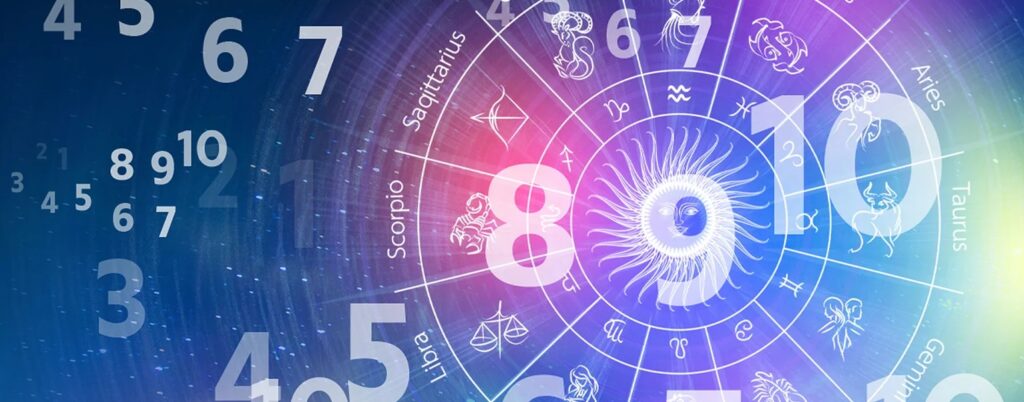Numerology is an ancient system that explores the mystical relationship between numbers and coinciding events or aspects of human life. It’s based on the belief that numbers carry unique energetic vibrations and meanings, which can influence a person’s personality, destiny, and the events that unfold in their life.
Here’s a breakdown of key aspects of numerology:
- Core Concept: Numerologists believe that the universe is mathematically precise and that by deciphering numerical patterns, one can gain insights into their purpose, characteristics, and fate.
- How it Works: Numerology primarily involves reducing significant numbers (like birth dates) and letters in names to single-digit numbers (1-9), or sometimes “master numbers” (11, 22, 33). Each number is then associated with specific traits, strengths, weaknesses, and life themes.
- Key Numbers Calculated:
- Life Path Number: Derived from your birth date, this is often considered the most important number, revealing your life’s purpose, overarching themes, and potential challenges.
- Destiny (or Expression) Number: Calculated from your full birth name, this number offers insights into your personality, talents, abilities, and how you express yourself to the world.
- Soul Urge (or Heart’s Desire) Number: Derived from the vowels in your full name, this number represents your inner desires, motivations, and what truly brings you satisfaction.
- Personality Number: Calculated from the consonants in your full name, this number reflects how others perceive you.
- Historical Roots: Numerology has roots in various ancient cultures, including Greek (Pythagorean system), Chaldean, and Kabbalistic traditions. The practice of assigning numerical values to words and names (like Gematria) dates back to antiquity.
- Applications: People use numerology for:
- Self-discovery: Gaining a deeper understanding of one’s strengths, weaknesses, and potential.
- Personal growth: Identifying areas for development and aligning with positive energies.
- Decision-making: Seeking guidance in areas like career choices, relationships, and important life events.
- Understanding relationships: Assessing compatibility with others.
- Forecasting: While not a definitive prediction of the future, it’s believed to indicate cycles and potential opportunities or challenges.
- Analogy to Astrology: Numerology is often compared to astrology, as both are ancient branches of esoteric wisdom that offer insights into a person’s life and characteristics, but they use different systems (numbers versus planetary positions).
It’s important to note that numerology is generally considered a pseudoscience or a divinatory art rather than a scientific discipline. However, for many, it serves as a valuable tool for introspection, self-help, and personal understanding.







